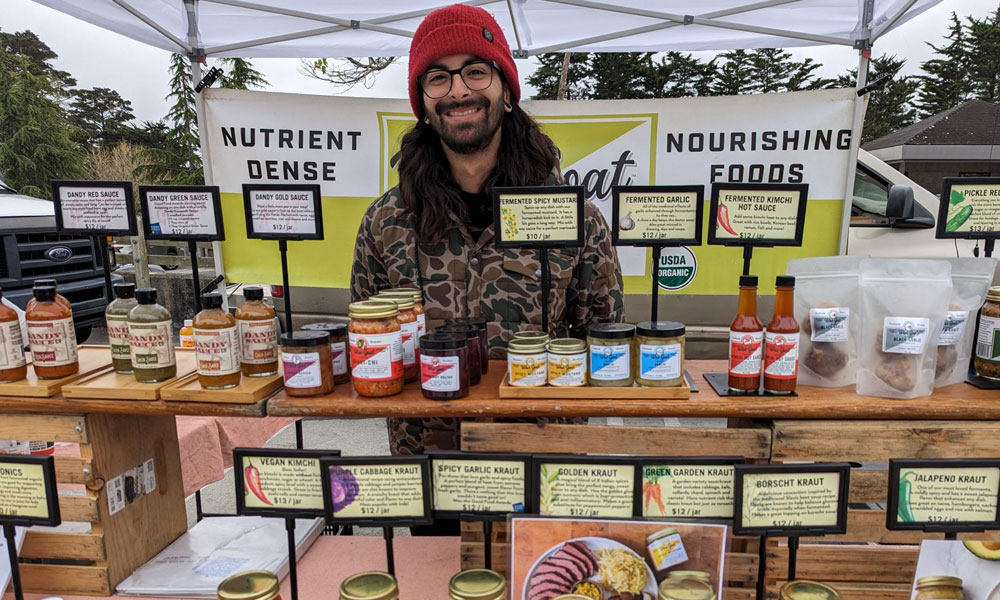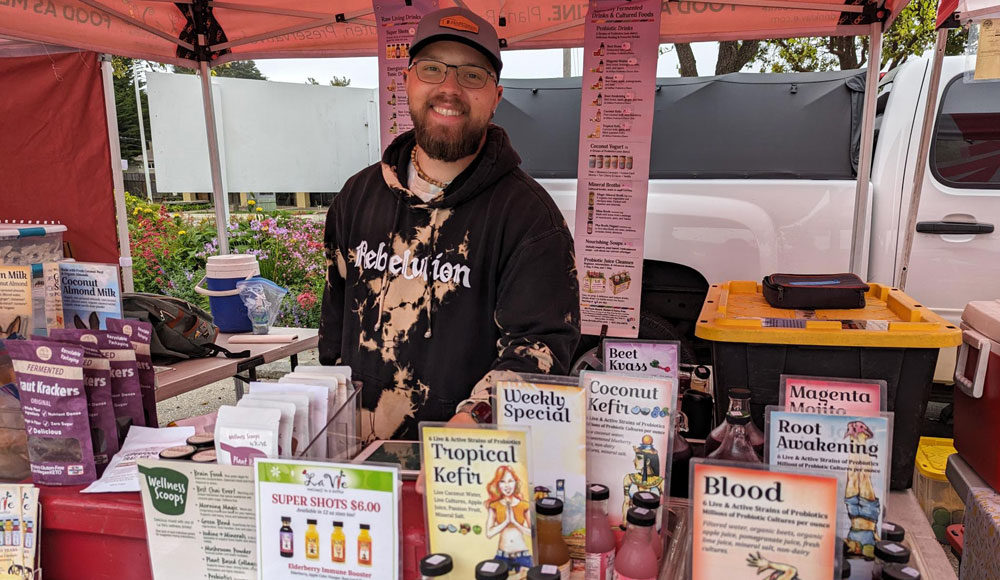One of the many perks of writing this column is the chance to meet interesting people, which is how I found myself at reception at Stanford to celebrate the success of the Netflix Twins Study. I happily made the hour-plus drive. Among the A-list of panelists sat local researcher Erica Sonnenburg, who also appeared in the series.
Sonnenburg and her work/life partner, Justin, study the human microbiome (a fancy word for the trillions of bacteria that inhabit the human gastrointestinal tract) and how dietary choices, antibiotic use and other factors affect it. The microbiome impacts metabolism and weight gain, and even has the potential to influence our state of mind.
But here’s the clincher: the unique set of microbiota that live in our GI tract don’t eat everything we do. In fact, they’re very picky. So even while as a nation our collective calorie consumption continues to rise, our guts have become increasingly malnourished. And not because we’re lacking in protein. In fact, glorifying protein and vilifying carbohydrates has left our biota hungry and confused.
Which brings me back to that late April evening at Stanford, listening to Erica Sonnenberg share her science-backed remedy for an underfed microbiome, the kind most of us live with today. Turns out all of our scientific advances in gut health can’t compare with an age-old tradition we’ve swept to the side in the age of grab and go, but one we can easily bring back with a trip to the store or, better yet, farmer’s market: fermented foods.

Return of Fermented Foods
Fermentation is the process by which food and beverages are transformed through enzymes from bacteria, yeast or microorganisms into gut-happy probiotics.
Probiotics are the live organisms known for restoring the natural flora in our gut that support digestion. These, along with plant-based complex carbohydrates, are the foods our microbiota crave.
While probiotic labels are slapped on everything from soda to skin cream as marketers jump on this trend, it’s hard to sift through the hype. In truth, the science is still evolving, and the “probiotic” label is not FDA-regulated, since it’s not considered a drug.
While taking a probiotic supplement isn’t a bad idea per se, you’ll get a more robust shot of gut food with non-pasteurized sauerkraut, kimchi, yogurt, koji, miso and sourdough bread.
Fermented condiments and beverages like apple cider vinegar, wine vinegar, kefir, kvass and kombucha are also great probiotic options.
These are the foods that do a belly good, and for Santa Cruzans, they’re easier than ever to find.
Fast forward to Saturday morning at the Aptos Farmers Market, where I returned to my go-to kraut stop, Wise Goat Organics, with a renewed sense of purpose. The enticing array of fermented products can be overwhelming, but the kimchi and fermented salsa are two of my favorites. The man in line in front of me was picking up his weekly order—about 10 jars of kraut. Maybe I’ll work my way up. wisegoatorganics.com
The story behind Wise Goat—founded over 15 years ago by a nutritionist, acupuncturist and goat owner—intrigued me. I reached out to Mary Riviti, producer of this award-winning brand, to learn more. She knew of the Sonnenburg’s work because they’ve used her products in some of their microbiota research.
We talked about the growing interest in fermentation, which Rivita says has gone from alternative to mainstream in recent years. “Today, more social influencers, nutritionists, even GPs recommend it. You’d be surprised at how often my customers tell me their Kaiser doc told them to start eating sauerkraut. There is more research linking fermented foods to immune function, hormones, mood, almost everything is connected to the gut. The other thing is stigma. Sauerkraut is no longer your grandmother’s recipe.”
When asked whether people shop for the health benefits or taste of fermented foods, Riviti says it’s both: “People come for the gut tonics and start looking around—all foods, even health foods, can be tasty.”
With nearly two decades on the Santa Cruz fermentation scene, La Vie Wellness is another well-established local presence. For 19 years, founder Yeyen Gunawan and her team have been crafting probiotic drinks and superfoods, becoming mainstays at multiple farmer’s markets.
But it’s been a while for me, so I planned a trip to the Sunday Live Oak market to check out the goods.
I was eyeing the delicious-looking coconut yogurt, but after talking to the knowledgeable La Vie rep, I decided to go with a tropical kefir containing, among other things, 30 billion cultures per ounce. La Vie’s wellness drinks are made with an infusion of fresh juices and superfood ingredients and include a variety of freshly made almond milks, as well as the first-ever multi-day Probiotic Juice Cleanse. Similar to Wise Goat, La Vie uses mostly local ingredients grown within 200 miles of Santa Cruz and contains no soy, dairy or gluten.
I left with two bottles of fermented goodness.
My last stop was at Hakouya, where founders Eriko Yokoyama and Masumi Diaz are passionate about fermentation. They are particularly interested in koji, the fungus grown on rice, barley or beans that results in a diversity of probiotic enzymes. It is the base ingredient used to make miso, soy sauce, sake and all kinds of Japanese condiments.
Koji has more than 100 enzymes, and the Hakouya team believe it is a major contributor to health and human longevity in Japan. Koji originally comes from southern Japan, where humans have the longest average lifespan on the planet.
Miso is a staple in Japanese cooking that is full of proteins, probiotics and nutrients. Hakouya miso is aged for up to 18 months for a perfect balance of umami and abundance of beneficial enzymes to support a healthy digestive system. Most miso products sold in stores have added alcohol, which kills beneficial enzymes.
While the products are pricey, the miso lasts for months.
To be sure, the fermented products I’ve mentioned are all a tad more expensive than mass-produced foods, but for those of us on a budget, a little tends to go a long way. And I’d be remiss not to mention that fermenting cabbage to make your own kraut is easily doable in your own kitchen, although it takes time to enjoy the results.












